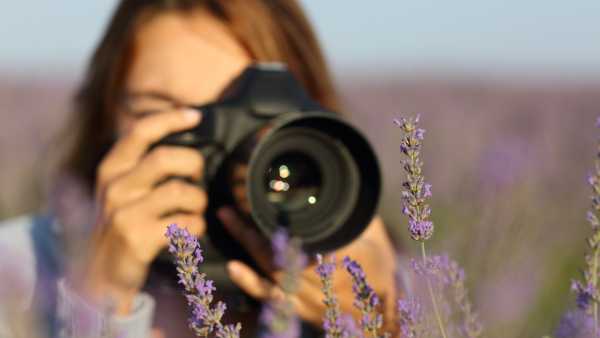
“Darling, Olya has a squirrel!” I blurted out, running home, my eyes wide and wide, but still holding a silent question: “Can I, please, never ask for anything again…?”
That little squirrel was found in the forest, fallen from its nest—a tiny, defenseless, and immediately trusting red miracle. He lived in a lightbulb box at work and in a hat at home. He slept all day and woke up occasionally to eat. He ate white bread soaked in goat's milk. And he slurped and smacked his lips so deliciously that we wanted to eat bread soaked in milk and go back to sleep.
Since then, I've been struggling with the overwhelming desire to have a squirrel at home, and the understanding that no one would fall out of the nest just for me. When I asked myself, “Tell me honestly, why do you need one?” I knew only one answer: “She's different.”
I'll tell you right away: I got a new squirrel. There were actually two of them. I bought one from a reseller and buried it almost immediately. The squirrel was sold to me as a tame one from an enclosure, but in reality, it was caught in the wild and never reconciled to captivity. Even though it cost a pretty penny, the squirrel didn't appreciate it. After the funeral, we now have a small amount of currency at home—one dusya (the equivalent of $200). So, a flat-screen TV for the kitchen costs 3 dusya. But my monthly cosmetics cost half a dusya, and so on.
And the second squirrel came when we least expected her. Well, it wasn't the season, squirrels don't fall out of their nests, they're already grown, so we decided to wait until spring. The squirrel mating season was about to begin, and then we'd find one in the forest and adopt one. Even my husband was impressed; the desire was mutual. We ended up adopting the squirrel three days after deciding to “wait.” True, a week later we made another adjustment—we adopted the squirrel. Such was the twist of fate: Kuzya was six months old, and she became Kuzyusha.
Baby squirrels are born two or three times a year: in spring, fall, and sometimes in winter. Unfortunately, the latter rarely survive. They are born blind and hairless. Their eyes open at 10-12 days. By the 30th day, a furry baby squirrel peers curiously out of its nest. And sometimes, it falls out of its nest through accident.
If you're walking through a forest, park, garden, etc. and suddenly find a squirrel who's exhausted, scared, bald, or not so much, help it survive. It's not that difficult, but it's so important for it!
So, you found a baby squirrel and brought it home:
1. The squirrel needs to be warmed: this could be your hands, a hat, a scarf, or a pocket. Even a bottle of hot water next to it will do.
2. The baby squirrel needs to be rehydrated, rather than fed immediately: use a dropper with water (not tap water, it's dangerous!). You need to get it to start drinking. Remember, baby squirrels are at risk: they have very weak intestines, and if they're not fed or watered correctly, the fight for life can last for minutes.
3. Then try feeding it. It's best to offer it goat's milk or kitten milk replacer (available at pet stores). If the squirrel is already older, white bread soaked in goat's milk is just right. Cow's milk is contraindicated for squirrels! If you can't feed it anything other than cow's milk, dilute it with water 1:1. Remember that a very young squirrel needs to be fed like a breastfed baby—every 2-3 hours.
My friend fed him with a pipette both at home and at work (he's tiny and slept in his own box most of the time). Just a little at a time, so he wouldn't choke. If you hold him in your arms, he'll quickly learn that you and your scent are the source of his treats. Consider yourself a friend forever.
If the squirrel is old enough to eat solid food, offer it pine nuts, only in their shells (they're less likely to be contaminated with a fungus dangerous to the squirrel), sunflower seeds (only natural ones in their shells, not roasted ones), twigs with leaves (apple, pear, willow), acorns, apples, and carrots. Generally, offer the squirrel only food it could find in the wild. Sugar cookies from kindhearted people in parks, of course, don't count. And remember, its teeth grow throughout its life, and it needs to wear them down on solid foods. Feeding a grown squirrel twice a day is sufficient.
4. Find a place for it, such as a box. It should definitely be free of cotton wool, as the baby squirrel could get tangled or suffocate. A terry towel is a good option for bedding. If the baby squirrel is older and you're worried about leaving it home alone to roam freely, you'll need to buy a cage. Remember: the taller the cage, the better for the baby. About 50x50x100 cm is suitable, but it's better if you let it out under supervision rather than just keeping it in the cage.
The cage must have fresh water (again, not tap water!). Secure the bowl or water bottle so the squirrel can't tip it over. Never line the bottom with newspaper; it's best to just use nothing: the ink on newspapers can cause lead buildup in the animal's body. Also, provide a small play area for the squirrel to rest in and another small play area for storing food for a rainy day. Lump chalk is essential for bone formation, and provide mineral stones and vitamins for rodents.
5. If, God forbid, your squirrel starts having loose stools, help him. Boil some oak bark (not too strongly) and leave it in the cage for half a day. You can also give him some smecta: we gave him some smeared on our finger – the squirrel licked it off himself. And most importantly, remove all fruit, and only give him dry food.
A baby squirrel is a wonderful creature, but it loves to steal the show. Try to train it to live by your rules from a young age. Squirrels have the intelligence of an adult dog, but they're just very small. Remember, your squirrel should feel like a fortress in its resting place: don't climb in there; it cleans itself—throws out nutshells and lays out its own bedding. By the way, cleaning the cage itself at least twice a week will ensure the absence of any odor (I simply replace the bedding on the bottom of the cage).
The squirrel we all raised has been living with my friend for almost a year now. He used to go to work with her, sitting in her sweater pocket. He's so tame that he even knows how to kiss on the lips. But even that didn't stop him from escaping from the fifth floor of a high-rise building. Against all odds, we finally got him down, shivering, from the tree with the help of the firefighters. The firefighters had to administer “alcohol compresses” to his stomach—he was so badly bitten.
If you are lucky enough to find a baby squirrel in the forest, please save it, don’t pass it by, it’s so defenseless and so wonderful!





